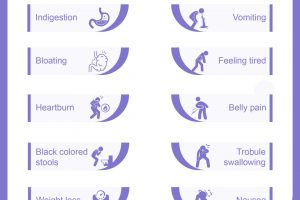Bladder cancer is a type of cancer that develops in the cells of the bladder, which is the organ responsible for storing urine. It is essential to have a comprehensive understanding of bladder cancer, including its causes, risk factors, diagnosis, and treatment options.
🔬 Causes and Risk Factors 🔬
While the exact cause of bladder cancer is not fully understood, certain factors increase the risk of developing the disease:
1️⃣ Smoking: Cigarette smoking is the most significant risk factor for bladder cancer, as the harmful chemicals in tobacco smoke can enter the bloodstream and reach the bladder.
2️⃣ Chemical exposure: Prolonged exposure to certain chemicals, such as those found in dyes, paints, and certain industrial substances, may increase the risk of bladder cancer.
3️⃣ Chronic bladder inflammation: Recurrent urinary tract infections and chronic inflammation of the bladder may contribute to the development of bladder cancer.
4️⃣ Age and gender: Bladder cancer occurs more frequently in older individuals, with the risk increasing with age. Men are more likely to develop bladder cancer than women.
5️⃣ Family history: A family history of bladder cancer can increase an individual’s risk of developing the disease.
🔍 Signs and Symptoms 🔍
Early detection plays a crucial role in the successful treatment of bladder cancer. The following signs and symptoms may indicate the presence of bladder cancer:
1️⃣ Hematuria (blood in urine): The most common symptom of bladder cancer is blood in the urine. The urine may appear pink, red, or dark brown. Although hematuria can be caused by other conditions, it should always be investigated by a healthcare professional.
2️⃣ Frequent urination: Individuals with bladder cancer may experience an increased frequency of urination. This can be accompanied by urgency and a feeling of incomplete bladder emptying.
3️⃣ Pain during urination: Some individuals with bladder cancer may experience pain or a burning sensation while urinating.
4️⃣ Pelvic or back pain: Advanced bladder cancer can cause pain in the pelvic area or lower back.
5️⃣ Urinary tract infections (UTIs): Recurrent UTIs that do not respond to treatment may be a warning sign of bladder cancer.
🩺 Diagnosis and Treatment 🩺
If bladder cancer is suspected, a healthcare professional will perform various diagnostic tests, including:
1️⃣ Urine tests: Analysis of urine samples can detect abnormal cells or blood.
2️⃣ Imaging tests: Imaging techniques such as ultrasound, CT scan, or MRI can provide detailed images of the bladder and surrounding structures.
3️⃣ Cystoscopy: A thin tube with a camera is inserted into the bladder through the urethra to examine the bladder lining and potentially collect tissue samples for further testing (biopsy).
Treatment options for bladder cancer depend on several factors, including the stage and grade of the cancer. They may include:
1️⃣ Surgery: The removal of cancerous tissue from the bladder may involve transurethral resection, partial cystectomy, or radical cystectomy.
2️⃣ Radiation therapy: High-energy rays are used to target and destroy cancer cells.
3️⃣ Chemotherapy: Medications are administered to kill cancer cells or stop their growth. Chemotherapy may be given before or after surgery or used in combination with radiation therapy.
4️⃣ Immunotherapy: These treatments help stimulate the body’s immune system to fight against cancer cells.
🌐 Raising Awareness and Promoting Early Detection 🌐
While certain risk factors cannot be controlled, there are preventive measures that individuals can take to reduce their risk of developing bladder cancer.
🚭 Tobacco Avoidance 🚭
Cigarette smoking is the most significant risk factor for bladder cancer. By quitting smoking or avoiding exposure to secondhand smoke, individuals can significantly reduce their risk. If you need assistance in quitting smoking, our healthcare professionals can provide guidance and support.
🚰 Hydration and Fluid Intake 🚰
Drinking an adequate amount of fluids, particularly water, can help dilute harmful substances in the urine and reduce the risk of bladder cancer. Aim for at least 8 glasses of water per day to maintain proper hydration.
🍅 Healthy Diet 🥦
A nutritious diet that includes a variety of fruits and vegetables is important for overall health and may help reduce the risk of bladder cancer. Include foods rich in antioxidants, such as berries, leafy greens, and tomatoes, to help protect against cell damage.
🌞 Occupational Safety 🛡️
If you work in an environment with potential exposure to chemicals or toxins, follow safety protocols and wear appropriate protective equipment. Minimizing contact with harmful substances can help lower the risk of bladder cancer.
🚱 Limit Chemical Exposure 🚱
Avoid or minimize exposure to chemicals and substances known to be associated with bladder cancer. This includes certain industrial chemicals, dyes, paints, and solvents. If you are unsure about potential risks in your environment, consult with occupational safety experts or healthcare professionals.
💦 Proper Hygiene 💦
Maintaining good personal hygiene and promptly treating any urinary tract infections can help reduce the risk of bladder cancer. Practice proper genital hygiene and seek medical attention if you experience persistent or recurrent urinary tract infections.
Regular medical check-ups and screenings are essential for early detection and treatment of bladder cancer. If you experience any symptoms such as blood in the urine, frequent urination, or pain during urination, consult a healthcare professional promptly.
At Basavatarakam Indo American Cancer Hospital and Research Institute, we emphasize the importance of preventive measures and early detection in the fight against bladder cancer. By raising awareness and promoting healthy lifestyle choices, we can work together to reduce the impact of this disease.
By sharing this information, you can help us spread awareness about bladder cancer, its signs and symptoms, and the importance of early detection.
Basavatarakam Indo American Cancer Hospital and Research institute, Road No 10, Banjara Hills, Hyderabad, Telangana, India Contact us: 040 - 2355 1235 / 7729 800 800







